Multilaterals approve financial assistance for African countries during the pandemic
Late last week, three African countries reached agreements with international financial institutions as part of efforts to boost economic recovery and their COVID-19 responses. On June 17, Ethiopia and the World Bank signed an agreement for $250 million for the Second Ethiopia Growth and Competitiveness Programmatic Development Policy Financing—$125 million will be in the form of credit, while the remaining $125 million will be a grant. The program targets private sector participation and good governance practices in the country, and the funds will allow the government to continue implementing these reforms, specifically by addressing its “unanticipated financing needs” resulting from COVID-19.
Meanwhile, on June 19, the New Development Bank approved a loan for $1 billion to South Africa as part of its emergency assistance program for the bank’s member countries: Brazil, Russia, India, China, and South Africa (BRICS). The technical details have not been finalized, but the loan is intended to support South Africa in improving its health care response and providing a social safety net to vulnerable groups.
Also on June 19, the International Monetary Fund approved $148 million for Guinea in emergency credit through its Rapid Credit Facility. The executive board of the IMF says that this funding is meant to help with balance of payments needs during the pandemic in addition to “catalyzing donors’ financial support” and “scaling up health spending.” Guinea also received debt relief in April through the Catastrophe Containment and Relief Trust.
In related lending news, on June 25, Zambian President Edgar Lungu announced that the country expects its external debt service to increase by 8.7 billion kwacha ($481 million) and its expenditure by 20 billion kwacha ($1.11 billion) due to a significant weakening of its currency. Zambia currently owes $3 billion to China, $2 billion to commercial banks, and $2 billion to the World Bank and International Monetary Fund; it also has $3 billion in outstanding eurobonds. A group of its creditors has formed a bondholder committee in order to “engage with Zambia with regard to its present situation, to facilitate communication among creditors, and to pursue any appropriate actions.”
COVID-19 updates and cascading effects in Africa
According to the Africa CDC, as of Wednesday, June 24, there were 337,315 cases and 8,863 deaths from COVID-19 in Africa. Of all the countries hit with the pandemic, South Africa, Egypt, Nigeria, Ghana, and Cameroon, respectively, have recorded the highest number of cases of the novel coronavirus on the continent. Meanwhile, countries continue to approach reopening their economies in a variety of ways, including delaying their timelines. For example, on Monday, Rwanda reported 59 new cases, the highest single-day spike since March, forcing officials to reconsider fully opening hotels, airports for tourism, and shops to boost the economy. In Senegal, President Macky Sall is going into self-isolation after being exposed to someone who tested positive for the virus.
Some countries continue to forge ahead, however: Tanzania is looking to open up the Mikumi National Park and other tourist attractions that have been closed since March, and South Africa’s Education Minister Angie Motshekga reported a 98 percent attendance rate in schools that have been open since June 8.
The virus is having effects on other parts of Africa, as tensions have risen between the northern Tigray region—specifically Tigray People’s Liberation Front (TPLF), who were in power prior to the current regime—and Prime Minister Abiy Ahmed’s central government. On Wednesday, June 24, the National Electoral Board of Ethiopia (NEBE), rejected the northern region’s proposal to hold elections despite the coronavirus. They determined that they do not have the capacity to hold elections at this time and could move the election to “nine to twelve months after the coronavirus is deemed not to be a public health concern,” according to Ethiopian lawmakers. This move would keep Prime Minister Ahmed in office past the initial end of his term, which was to be in October.
At the same time, despite the spread of COVID-19 across the continent, news of the disease has yet to reach many people, like migrants coming into Somalia—often young men from rural parts of Ethiopia who have little or no access to education or the internet. Indeed, according to information from monitors for the International Organization for Migration, the United Nations migration agency, in the week ending June 20, 51 percent of the migrants interviewed said they had never heard of COVID-19, though this percentage is down from 88 percent when they first began asking migrants about the virus. According to the Associated Press, this lack of information is not limited to migrants who are crossing the border, as some Somalis in rural areas have been either dismissive of the virus or did not know it exists.
Political updates in Malawi, Burundi, and Rwanda
On Tuesday, citizens of Malawi went to the polls once again to vote in a presidential election, after the country’s supreme court had annulled the results of the May 2019 election under reports of severe irregularities. By Thursday evening, supporters of opposition candidate Lazarus Chakwera were anticipating a victory as the state broadcaster MBC announced his early lead over incumbent President Peter Mutharika. However, as of this writing, no winner has been announced.
In the lead-up to the polls, observers, citizens, and local watchdogs have expressed their belief that the rerun will be “free, fair and credible,” especially under the reconstituted electoral commission. Voting was largely peaceful, with the exception of reports by Mutharika of violence in opposition strongholds in central Malawi. Notably, this election was the first to see a change in how the winner is decided, moving away from a first-past-the-post system to mandating that the winner receive over 50 percent of the vote or else head to a run off.
Meanwhile, on Wednesday, June 24, Burundi announced the selection of its newest prime minister and vice president after approval of the nominations by the country’s senate. The positions will be held, respectively, by Alain-Guillaume Bunyoni and Bazombanza Prosper. Technically, while the vice president assists the president in his executive duties, the prime minister is considered the head of government. The two men were nominated to the posts by newly elected President Evariste Ndayishimiye, who was notably inaugurated early due to the sudden death of outgoing President Pierre Nkurunziza earlier this month.
Also this week, in neighboring Rwanda, the country’s parliament voted to expand the powers of President Paul Kagame. On June 23, citing the desire to reduce government inefficiencies, the Rwandan parliament approved a bill by 78 to 2 empowering the president to create and disband both public institutions and state-owned companies. Previously, the power belonged to the parliament itself.
The Brookings Institution is committed to quality, independence, and impact.
We are supported by a diverse array of funders. In line with our values and policies, each Brookings publication represents the sole views of its author(s).

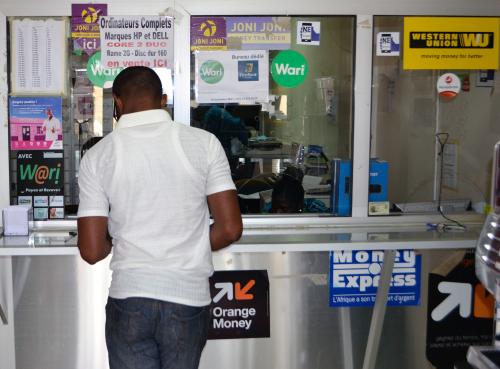
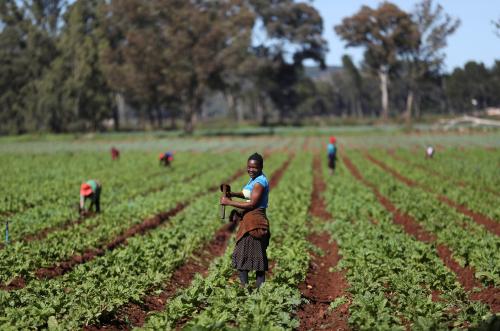
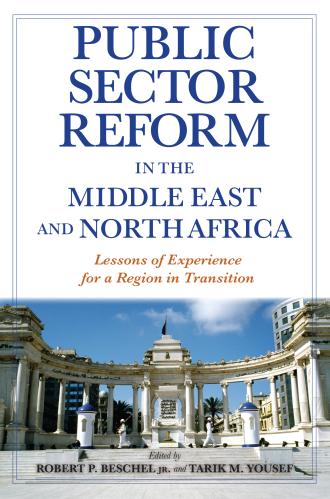
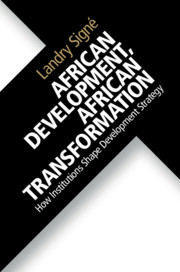
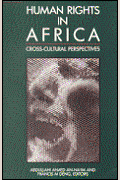




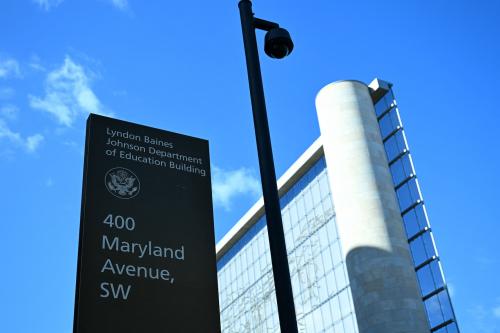
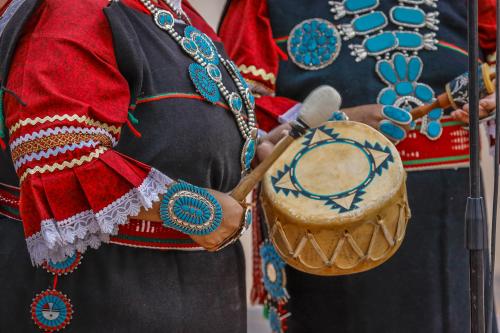
Commentary
Africa in the news: COVID-19, financial assistance, and political updates from Malawi, Burundi, and Rwanda
June 27, 2020